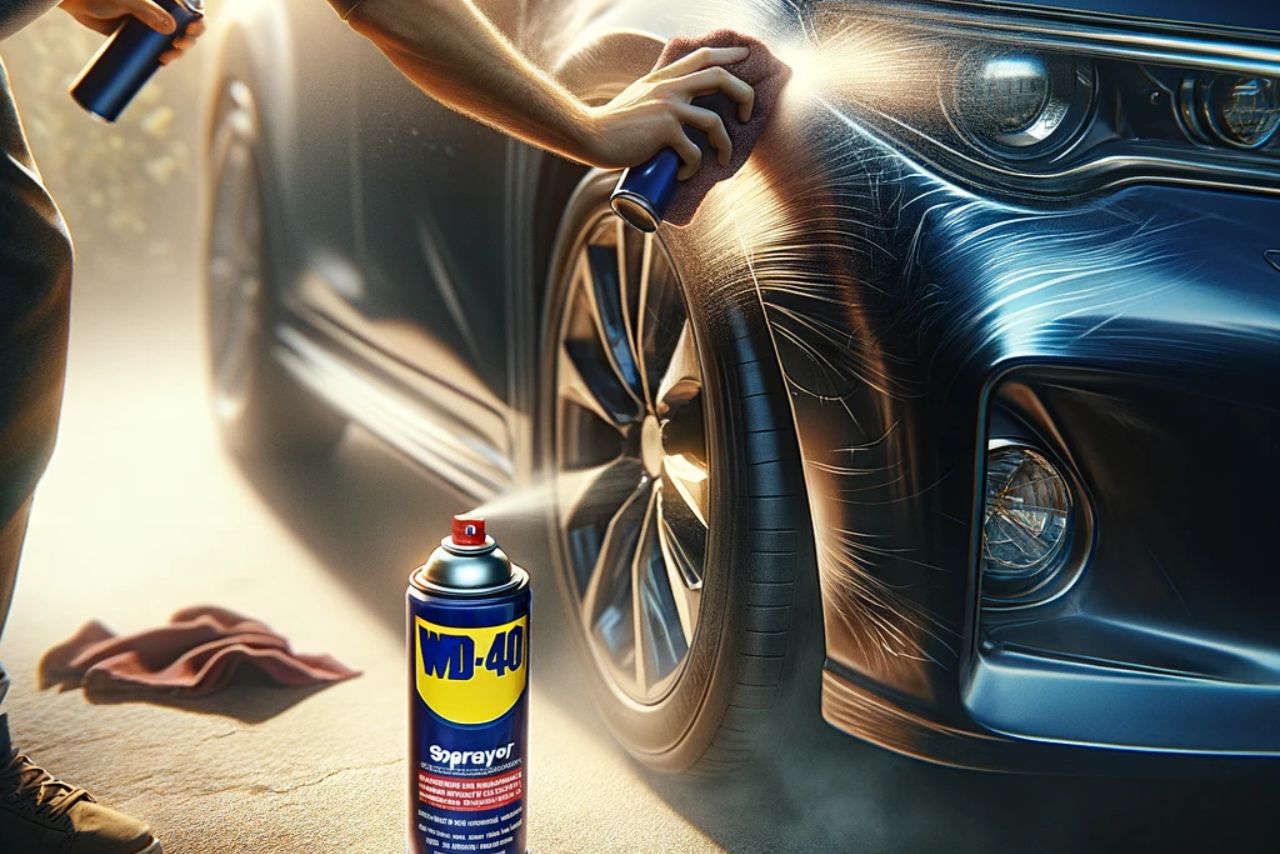Can I Use 5w30 Instead Of 5w20? Most car engines are designed to handle 5w20 oil because this type of oil flows well when the engine reaches its operating temperature of 212 degrees.
If 5w30 oil is used, the engine will encounter much more resistance at this stage which is not good for it.
When it comes to choosing the right oil for your car’s engine, you may have heard conflicting opinions about whether you can use 5w30 instead of the recommended 5w20.
The truth is, most car engines are specifically designed to work optimally with 5w20 oil.
| Image | Title | Brand | Prime | Buy |
|---|---|---|---|---|
| Mobil 1 Advanced Full Synthetic Motor Oil 5W-20, 5 Quart | Mobil 1 | PrimeEligible | Buy Now | |
| Valvoline Advanced Full Synthetic SAE 5W-30 Motor Oil 5 QT | Valvoline | PrimeEligible | Buy Now |
Prices and images pulled from the Amazon Product Advertising API on:
This particular viscosity has been carefully selected by manufacturers for a reason – it provides excellent flow properties when the engine heats up to its operating temperature of around 212 degrees Fahrenheit.
The key difference between these two oils lies in their viscosity ratings. The numbers before the “W” stand for winter or cold-start viscosity, while the numbers after indicate how thick or resistant the oil becomes at high temperatures.
In simple terms, using a higher viscosity (such as switching from 5w20 to 5w30) means that your engine will experience more resistance during operation at elevated temperatures.
While some might argue that using slightly thicker oil won’t cause significant harm, it’s important to understand that engines are finely tuned machines where even small changes can have long-term consequences.
Using a heavier grade like 5w30 instead of what’s recommended could potentially affect fuel economy and overall performance over time.
Therefore, sticking with what your manufacturer suggests – in this case, using proper and compatible lubrication like quality synthetic or conventional motor oils formulated as per OEM specifications – is crucial for maintaining optimal functioning and longevity of your vehicle’s engine.
Table of contents
Can I Use 5w30 Instead Of 5w20?
The answer is No, you should not use 5w30 oil instead of 5w20 oil unless your car’s owner’s manual specifically recommends it.
The W in the oil viscosity rating stands for “winter,” and the number before the W indicates how well the oil flows at cold temperatures.
A lower number means the oil is thinner and flows more easily at cold temperatures. 5w20 oil is a thinner oil than 5w30 oil, so it will flow more easily at cold temperatures.
If you use 5w30 oil in an engine that is designed for 5w20 oil, the oil may not flow as easily at cold temperatures. This can lead to problems such as:
If your car’s owner’s manual recommends 5w30 oil, you can use it without any problems. However, if your manual recommends 5w20 oil, you should stick with that oil to avoid any potential problems.
Here are some alternatives to 5w20 oil:
- ADVANCED PROTECTION AGAINST the four main causes of engine breakdown: wear friction heat and deposits
- 40% BETTER WEAR PROTECTION vs. industry standard as tested in the Sequence IVB engine test
- 25% BETTER DEPOSIT PROTECTION with superior engine cleaning detergents as tested in the GMOD engine test
- EXCEPTIONAL HIGH/LOW TEMPERATURE PROTECTION defends your motor no matter the weather conditions
- MEETS OR EXCEEDS ALL REQUIREMENTS of ILSAC GF-6A, API SP, API SN with SN PLUS, API SN, GM dexos 1 Gen 3
- AMERICAN MADE & FORMULATED to maximize your engine’s life and improve it’s performance
If you are unsure about what type of oil to use in your car, you should consult your owner’s manual.
Why Most Car Engines Use 5w20 Oil?
Understanding the Importance of Engine Operating Temperature:
Why is Engine Operating Temperature Important?
Potential Issues with Using Different Oil Viscosities:
It is crucial always to follow your vehicle manufacturer’s recommendations for motor oil viscosity grades based on your specific car model since these guidelines are created considering factors related specifically for proper functioning in various conditions.
The Difference Between 5w20 and 5w30 Oil:
| Image | Title | Brand | Prime | Buy |
|---|---|---|---|---|
| Mobil 1 Advanced Full Synthetic Motor Oil 5W-20, 5 Quart | Mobil 1 | PrimeEligible | Buy Now | |
| Valvoline Advanced Full Synthetic SAE 5W-30 Motor Oil 5 QT | Valvoline | PrimeEligible | Buy Now |
Prices and images pulled from the Amazon Product Advertising API on:
Potential Risks of Using 5w30 Instead of Recommended Oil:

Using 5w30 oil instead of the recommended 5w20 oil can pose several risks to your car’s engine. Here are some potential issues you may encounter:
It is important always to follow the manufacturer’s recommendations for motor oil viscosity specified in your vehicle’s owner manual or consult a trusted mechanic before making any changes regarding which type of oil you should use in your car’s engine
How Engine Performance is Affected by Different Viscosity Grades?
Effects of Using 5w30 Instead of Recommended 5w20:
- Mobil 1 advanced full synthetic motor oil 5W-20 helps to protect your engine from the five factors that can damage engines over time
- Helps to protect critical engine parts for up to 10,000 miles between oil changes*, controlling oxidation to prevent oil breakdown and maintaining excellent viscosity
- Meets ILSAC GF-6 standards to help provide low-speed pre-ignition (LSPI) and timing chain wear protection while keeping your engine clean and helping to improve your fuel economy
- Helps extend engine life by working to prevent damaging deposits and sludge buildup
- Provides excellent internal engine heat protection (up to 500 degrees F) and low temperature protection (to -30 degrees F)

- Increased Resistance:
- When a car engine is designed for a specific oil grade like 5w20, using a thicker option such as 5w30 can result in increased resistance within the engine parts.
- This higher resistance means that more force is required for the components to move, potentially leading to decreased performance.
- Lubrication Issues:
- Oil acts as a lubricant within an engine, reducing friction between moving parts and preventing excessive wear and tear.
- Since thinner oils like 5w20 flow more easily than thicker ones like 5w30, they provide better lubrication across various engine components.
- Temperature Sensitivity:
- Engines operate best under specific temperature ranges; therefore, it’s crucial to use an appropriate oil grade that suits these requirements.
- A mismatched viscosity grade may impact how well an engine functions at both lower and higher temperatures.
- Fuel Economy Considerations:
- Thicker oils like 5w30 generally offer slightly less fuel efficiency compared to thinner options such as 5w20 due to increased internal friction caused by their higher viscosities.
While it might be tempting to use a different viscosity grade such as 5w30 instead of the recommended 5w20, it’s important to understand that the engine performance can be adversely affected.
The manufacturer’s recommendation should be followed to ensure optimal engine functioning and longevity.
Expert Recommendations for Choosing the Right Oil Grade:
When it comes to choosing the right oil grade for your car’s engine, there are a few key factors to consider. Here are some expert recommendations:
It’s important to note that while some engines may tolerate slight variations in oil grades without significant issues, deviating too far from the manufacturer’s recommendation can potentially lead to decreased performance and even engine damage over time.
Therefore, it is generally advisable to stick within the range of suitable options provided by your vehicle’s manufacturer.
Remember: Regularly checking and maintaining proper oil levels is crucial regardless of the chosen grade!
Always refer back to your owner manual or consult an expert when making decisions regarding which oil grade is most appropriate for your car’s engine.
Taking Care of Your Engine: Best Practices for Regular Maintenance
Regular maintenance is essential to keep your engine running smoothly and ensure its longevity. By following these best practices, you can take care of your engine effectively:
Remember that preventive maintenance plays a crucial role in preserving your engine’s health while minimizing the risk of unexpected breakdowns.
By following these best practices, you can ensure your engine operates at its peak performance for years to come.
Conclusion and final thoughts 💭
While it may be tempting to use 5w30 oil instead of the recommended 5w20 in your car engine, it’s important to consider the potential consequences.
Most car engines are specifically designed to operate optimally with 5w20 oil due to its ability to flow smoothly at higher temperatures.
Using 5w30 oil can introduce more resistance and strain on the engine when it reaches its operating temperature of 212 degrees Fahrenheit.
This increased resistance can have negative effects on the engine’s performance and longevity. Therefore, it is generally advisable to stick with the manufacturer-recommended 5w20 oil for optimal engine health and performance.
Remember, using the right type of oil not only ensures proper lubrication but also helps maintain your car’s overall efficiency and reliability.
So, always refer to your vehicle’s manual or consult a professional mechanic before making any changes that could potentially impact your car’s engine performance.
Latest Posts:
- Can WD-40 Remove Scratches on Cars? (Hint: Yes, but…)
- Can You Use a Drill to Polish Your Car? (We Tried it Out!)
- Should You Cover Car Scratches With Stickers? (REVEALED!)
- Buick Service Stabilitrak: (Causes & 100% Guaranteed Fix!)
- Common Holden Trax Problems (Causes & 100% Proven Fixes!)
- Jeep Commander Transmission Over Temp: (Guaranteed Fix!)











Leave a Reply